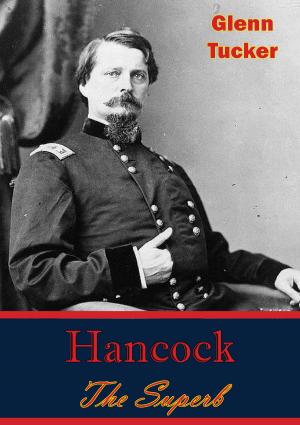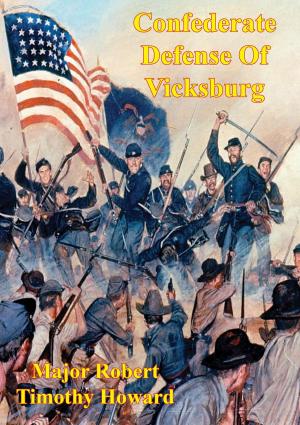Morale In The Army Of The Cumberland During The Tullahoma And Chickamauga Campaigns
Nonfiction, History, Modern, 19th Century, Americas, United States, Civil War Period (1850-1877), Military| Author: | Major Robert J. Dalessandro | ISBN: | 9781786253750 |
| Publisher: | Golden Springs Publishing | Publication: | November 6, 2015 |
| Imprint: | Golden Springs Publishing | Language: | English |
| Author: | Major Robert J. Dalessandro |
| ISBN: | 9781786253750 |
| Publisher: | Golden Springs Publishing |
| Publication: | November 6, 2015 |
| Imprint: | Golden Springs Publishing |
| Language: | English |
This study examines insights into the state of morale of the Army of the Cumberland during the period of the Tullahoma and Chickamauga campaigns. The thesis covers the period from June through September 1863.
The thesis focused on the organization and leadership of the Army of the Cumberland. It then examined morale as the whole of diverse factors, including national and individual factors. National factors were generally out of control of the army leadership. They included a soldiers’ motivation for joining the army, his views toward southern sympathizers at home, the impact of John Morgan’s Ohio Raid, soldier views on conscription, and effects of the progress of the war on morale. Individual factors comprised concerns for home, family, business, and religion. These areas were also largely beyond the influence of the army leadership.
The study then examined morale factors the army could control. It explored army life, attitudes toward leadership, level of discipline, how the army leadership cared for solders, and the impact of mail on soldier morale. The thesis concludes that the Army of the Cumberland was a well lead organization. Consequently, the state of morale of the army was high throughout the Tullahoma campaign and was not significantly diminished as a result of the defeat at Chickamauga.
The thesis further concluded that soldier confidence in Major General William S. Rosecrans remained high throughout the period of the study. Confidence in many corps and some division level commanders did, however, suffer as a result of the Chickamauga defeat.
Additionally, the thesis concluded that Major General Rosecrans had been undermined from within his own headquarters—ultimately leading to his relief.
This study examines insights into the state of morale of the Army of the Cumberland during the period of the Tullahoma and Chickamauga campaigns. The thesis covers the period from June through September 1863.
The thesis focused on the organization and leadership of the Army of the Cumberland. It then examined morale as the whole of diverse factors, including national and individual factors. National factors were generally out of control of the army leadership. They included a soldiers’ motivation for joining the army, his views toward southern sympathizers at home, the impact of John Morgan’s Ohio Raid, soldier views on conscription, and effects of the progress of the war on morale. Individual factors comprised concerns for home, family, business, and religion. These areas were also largely beyond the influence of the army leadership.
The study then examined morale factors the army could control. It explored army life, attitudes toward leadership, level of discipline, how the army leadership cared for solders, and the impact of mail on soldier morale. The thesis concludes that the Army of the Cumberland was a well lead organization. Consequently, the state of morale of the army was high throughout the Tullahoma campaign and was not significantly diminished as a result of the defeat at Chickamauga.
The thesis further concluded that soldier confidence in Major General William S. Rosecrans remained high throughout the period of the study. Confidence in many corps and some division level commanders did, however, suffer as a result of the Chickamauga defeat.
Additionally, the thesis concluded that Major General Rosecrans had been undermined from within his own headquarters—ultimately leading to his relief.


![Cover of the book Staff Ride Guide - The Battle Of First Bull Run [Illustrated Edition] by Major Robert J. Dalessandro](https://www.kuoky.com/images/2014/august/300x300/9781782894599-MCut_300x.jpg)
![Cover of the book The Vicksburg Campaign, November 1862-July 1863 [Illustrated Edition] by Major Robert J. Dalessandro](https://www.kuoky.com/images/2015/november/300x300/9781782899365-GJ69_300x.jpg)
![Cover of the book Memoirs Of The Confederate War For Independence [Illustrated Edition] by Major Robert J. Dalessandro](https://www.kuoky.com/images/2013/february/300x300/9781908902788-QQkl_300x.jpg)








![Cover of the book Campaigning With Grant [Illustrated Edition] by Major Robert J. Dalessandro](https://www.kuoky.com/images/2015/november/300x300/9781786251343-nHlF_300x.jpg)

